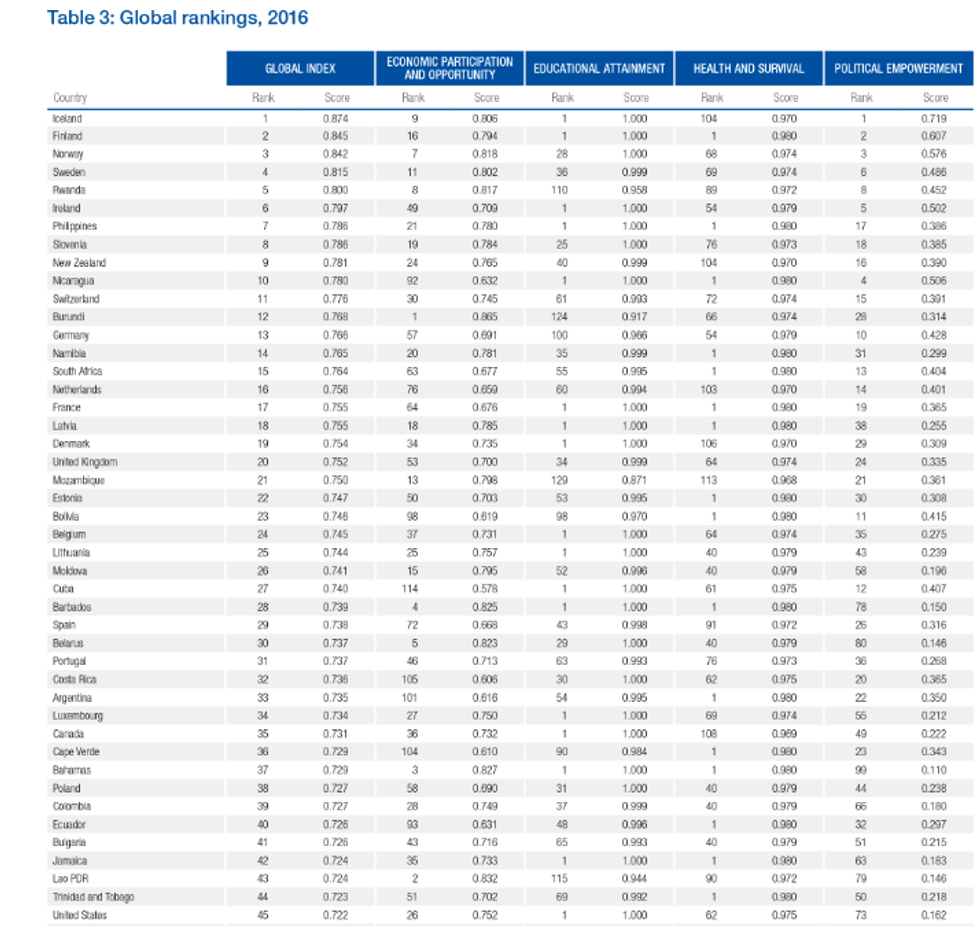Over the years women have fought, time and time again, for their right to be seen and treated equal to men. Women all over the world, from industrialized countries to those of lesser resources, are at a constant war with the ideals of masculinity and the extreme disadvantage femininity plays in the cultures of today. Now, this is not intended to slander men and act as though they are bad and evil, but instead to shine a spotlight on the global cataclysms that surround women in everyday life.
When speaking about Women's rights, it is easy to assume that the countries at a higher risk for a large gender gap would be in less industrialized regions. These assumptions, however, are very much wrong. According to the World Economic Forum on the gender gap in all countries, as of 2016, some of the countries with the most affluent economies have a very wide gender gap comparatively. Countries like Germany and the United States were actually ranked much lower on the scale of opportunity and status compared to countries like Rwanda and Nicaragua, which ranked in the top ten- closing 80% and 78%, respectively, of their gender gap.

Now, why does this matter? Because, in America at least, it seems like women have equal rights, doesn't it?
Well, according to a separate article, by the same source, women, in America alone, earn on average 21% less income than men annually. This equates to a woman earning around 77-78 cents to every dollar that a man would earn. And globally, according to the United Nations, girls are still much less likely to ever step foot in a classroom compared to boys their same age. Even those women that do become educated- since some women tend to seek higher education and gender parity does exist in North America- will go on to make less than the men in their same position. In today's age, these statistics are quite alarming. An increase in gender parity, especially in reference to education, could theoretically lead to lower infant, child, and maternal mortality rate, and will in turn increase labor participation resulting in more equal wages over time.
The first step in solving global issues is becoming educated on them. Understanding that the world we live in is far from optimal and sometimes we all have to come together to stand up for what's right. The World Economic Forum states that it may take another 200+ years to close this economic gender gap completely, on a global scale.
Provided below are a few reliable sources about the topic discussed:
-http://reports.weforum.org/global-gender-gap-repor...
-https://www.weforum.org/projects/closing-the-gende...



















